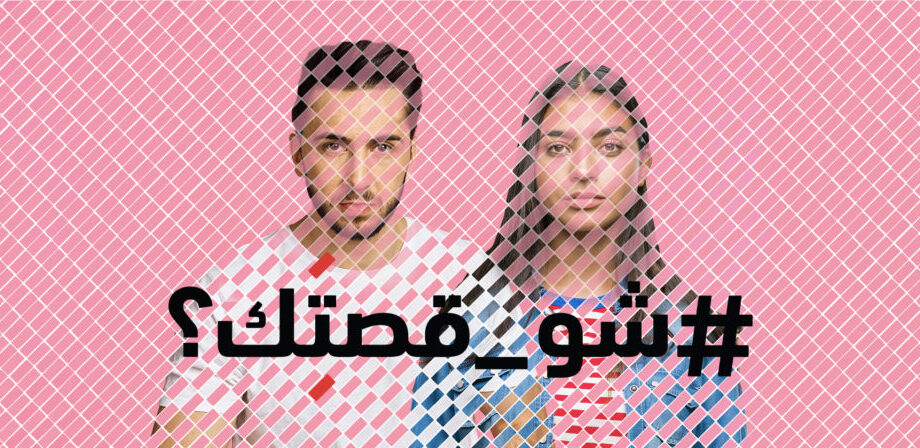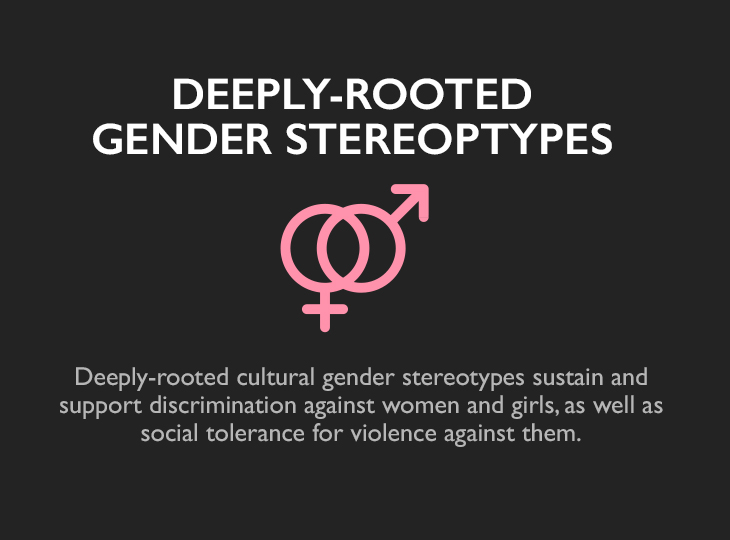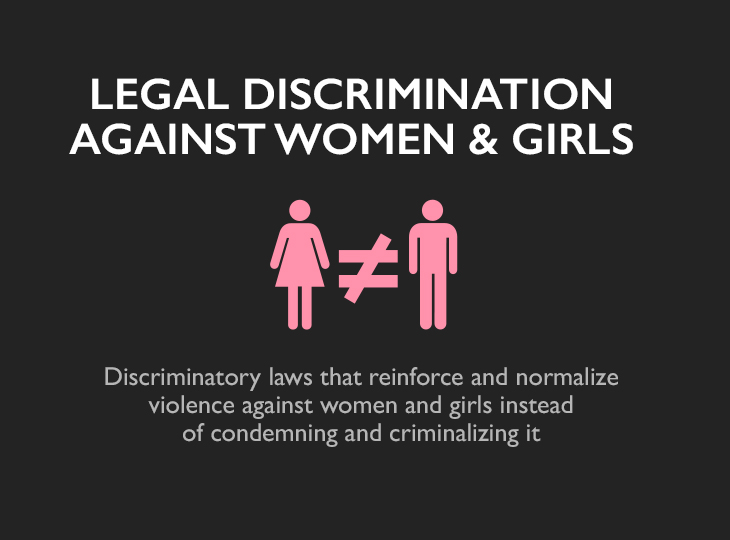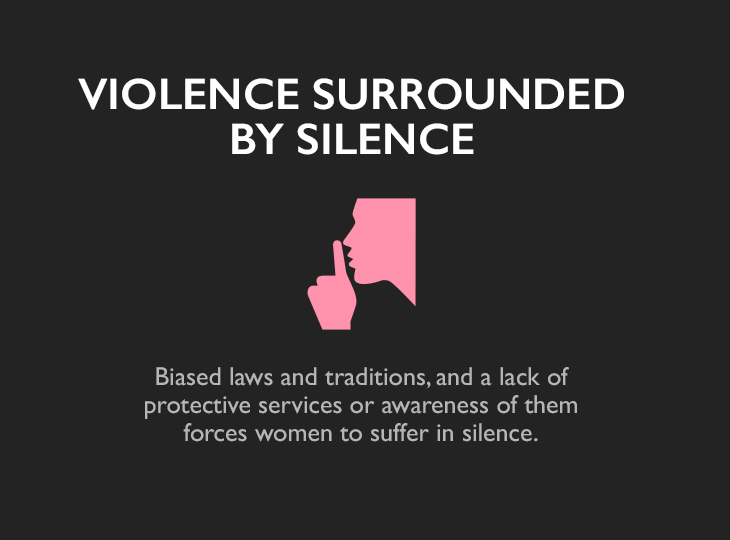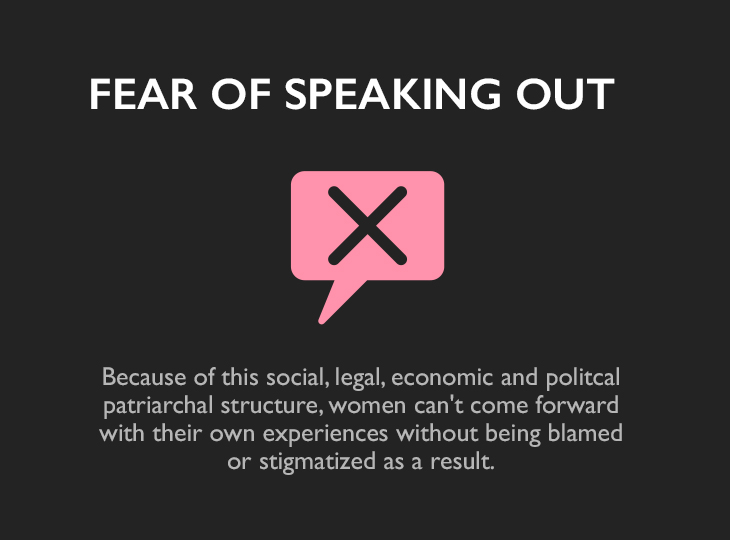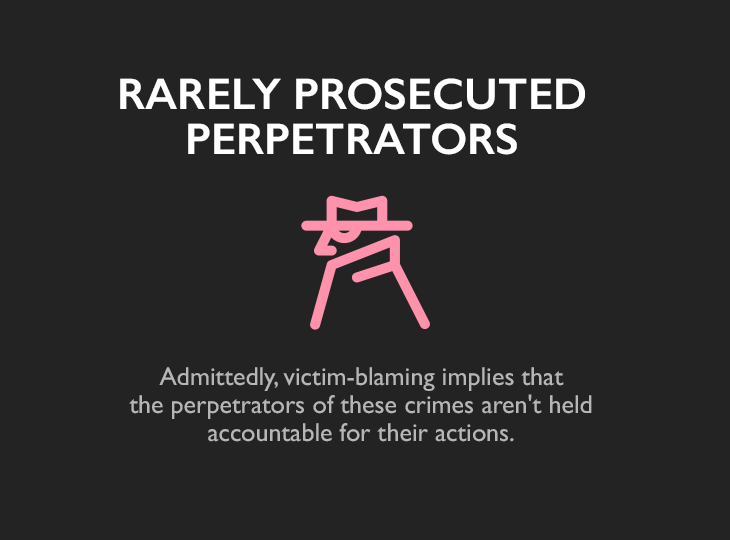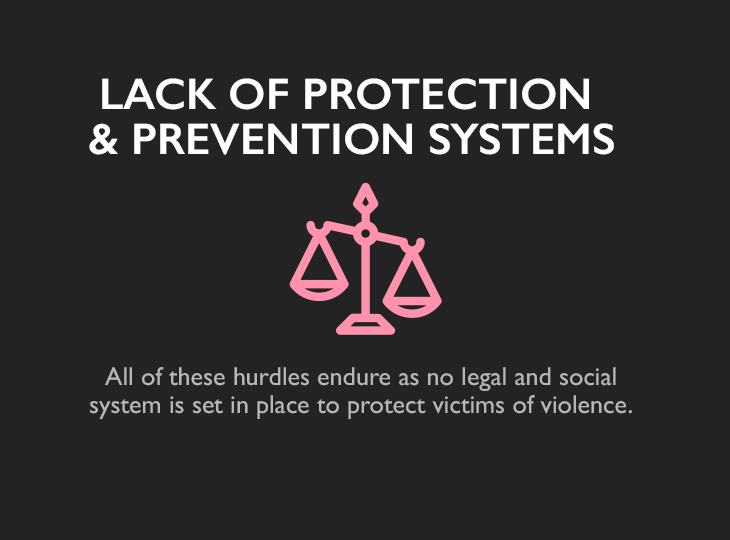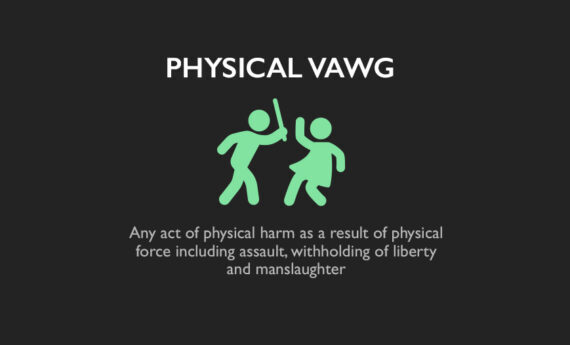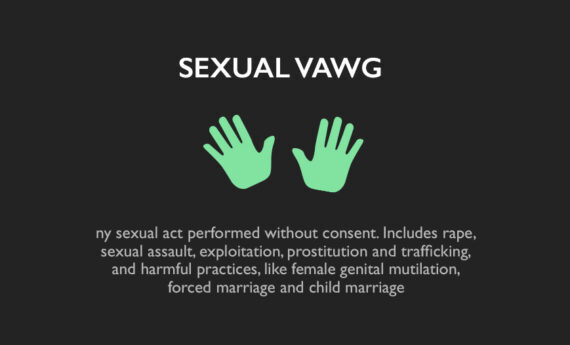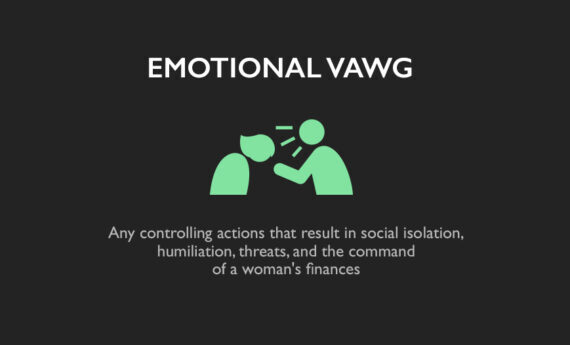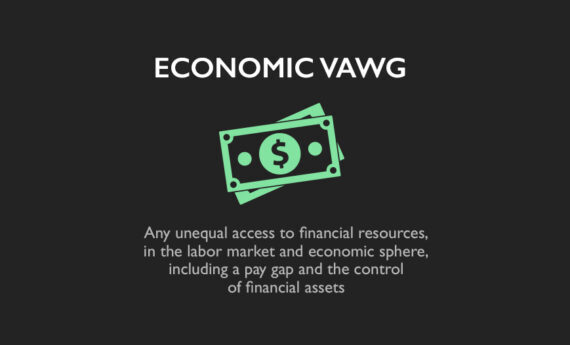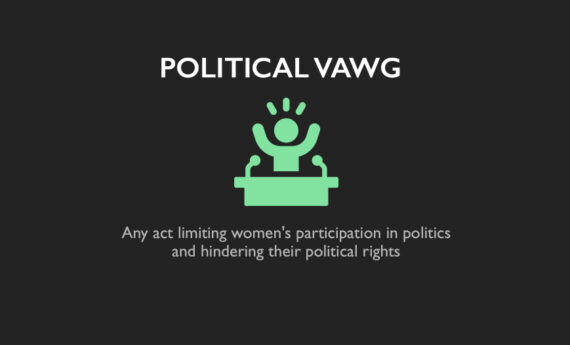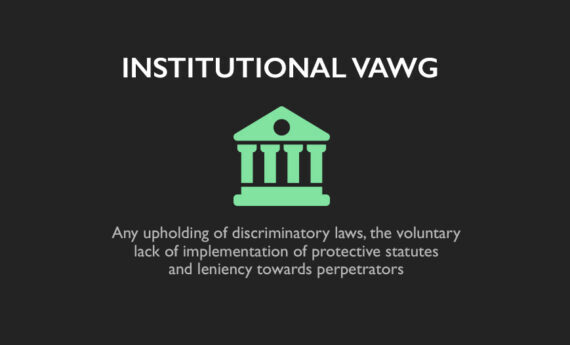What Does Violence against Women and Girls Mean?
The United Nations defines Violence Against Women and Girls (VAWG) as “any act of gender-based violence that results in […] physical, sexual or psychological harm or suffering to women, […] whether occurring in public or private life.” Violence can strip women of their human rights, and exclude them from political and economic endeavors. Consequences can also be physical and mental. They can lead up to fatal injuries, unmeant pregnancies, forced abortions, sexually transmitted infections (STIs) including HIV, and mental health disorders (e.g., depression, anxiety).
Types of Violence against Women & Girls
Why This Campaign?
This Regional Campaign contributes to the elimination of all forms of Violence Against Women and Girls (VAWG) in the Southern Mediterranean region. It achieves this by spreading awareness and knowledge on the extent, severity, and consequences of VAWG to influence public attitude and gather support for its criminalization. While also shifting the blame, social stigma, and condemnation from the victim to the perpetrator, uncovering existing discriminative legislation that sustain the rule of silence, combating gender stereotypes and promoting gender equality at schools, while encouraging educational staff and youth to be actors of change. Additionally, it disseminates information on existing services for victims, training staff of relevant authorities to allow them to become 'first responders.' Finally, it also will be launching a Regional Civil Society Observatory to monitor the government's commitments, assess policies of VAWG, liaise with concerned stakeholders, and provide recommendations.
Only by Changing the Law can we Exact Real Change.
The campaign captures shared challenges in the region, while also addressing national priorities in combating Violence Against Women and Girls (VAWG). For this reason, it took off simultaneously on both regional and national levels. It pays particular attention to tackling discriminative legislation. All the while it disseminates information on existing services for victims and supports the institutionalization of training programs for relevant authorities (judiciary, police, health, and social services).


